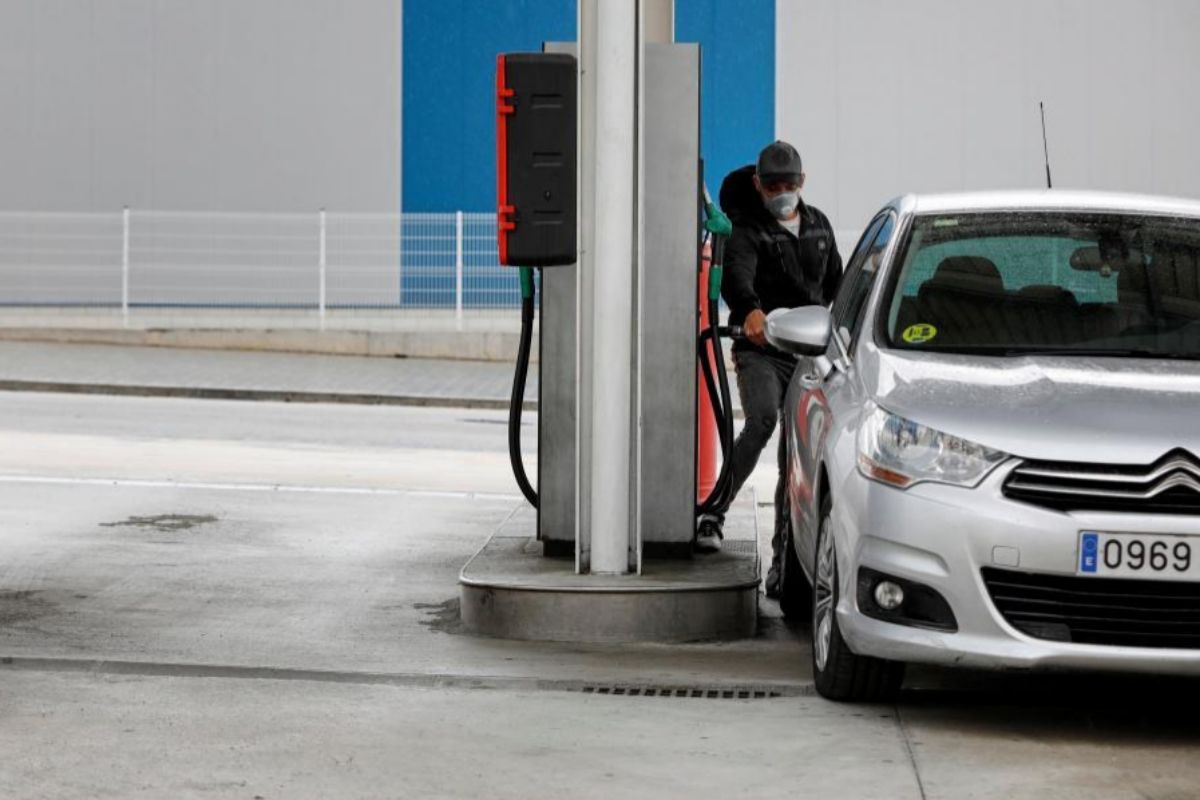The Government is studying allowing thousands of gas stations to be closed due to the lengthening of the coronavirus crisis and the collapse of activity in these facilities due to the confinement of millions of Spaniards in their homes.
The main groups of gas stations in the country have transferred in recent days to Minister Teresa Ribera their difficulty in keeping their facilities open when the drop in demand exceeds in some cases 90%. In addition, they insist, the health of a group that groups more than 53,000 workers in Spain is at stake.
The decree of the State of alarm obliges the gas stations to remain open to guarantee the supply unless they register a case of contagion by coronavirus. But the loss of activity due to the limit on the use of private vehicles has meant that the turnover of facilities collapses 60% in those located on large roads, 75% in those located in urban areas and up to 90% in environments rural, according to data from the sector itself.
The approach that the Executive is considering is to apply a kind of minimum services that emulate the operation of the sector during the days of general strike. In this way, the guarantee of supply would be maintained while those who needed it would be allowed to close the establishment.
The closure could affect more than a quarter of the country's gas station network, so according to the figures that are transferred in the sector to EL MUNDO, it would exceed 3,000 establishments. The small gas stations most exposed to the impact of the economic slowdown would have priority in the closure over establishments owned by large oil networks such as Repsol or Cepsa . A spokeswoman for the Ecological Transition ministry declined to comment.
"There are small gas stations that are billing on average 150 euros a day, so their gross profit would be about 12 euros with which they have to pay an average of three or four employees. Opening the business costs them money and to continue like this they will end up closing ", they explain in Aevecar.
Some of these companies have been able to reduce their opening hours within the limits established by the hydrocarbon law that regulates their activity. However, the sector is asked to go deeper into this path, even allowing opening hours of 8 hours a day, which would allow the release of personnel. In the case of the popularly known as 'phantom' gas stations - which do not have service personnel on the runway - they continue to develop their activity automatically.
Gas stations want a similar treatment to that received by financial institutions, whose activity is also regulated by the royal decree of the State of alarm. The banks have gradually closed their offices, guaranteeing the best possible service to the few customers who visit them every morning. To do this, they have merged the work of the branches with those closest to them and encouraged the teleworking of their employees. According to calculations compiled by EL MUNDO, the entities have closed in the last week more than 4,500 offices.
Banks have not followed a uniform strategy around closing offices. The two largest entities, Santander and BBVA, have closed between 50% and 70% of their network, respectively, while for example in the case of Bankia or CaixaBank the adjustment has been much lower. In the first case, for example, only those offices affected by coronavirus have lowered the blinds.
However, the crisis management teams of the entities themselves supervise the activity in the office network on a daily basis and carry out a dynamic management that allows them to adjust their opening and closing almost immediately, so the number of the 4,500 branches will continue to grow.
The financial sector is contacting these days with all its clients to inform them that almost all operations can be carried out through telematic channels. The request for credit for investment or home purchase has plummeted in recent days, but now a certain reactivation of working capital is expected once the public guarantee program launched by the Government comes into effect.
According to the criteria of The Trust Project
Know more- Teresa Ribera
- Santander
- Spain
- economy
- Coronavirus
- Covid 19
EmpresasCCOO asks Industry to be "agile" in the search for an investor to solve the crisis of Duro Felguera
CORONAVIRUSTemor in bank branches before the next flood of retirees for the collection of the pension
BancaBankia studies extending the coronavirus mortgage moratorium to one year

